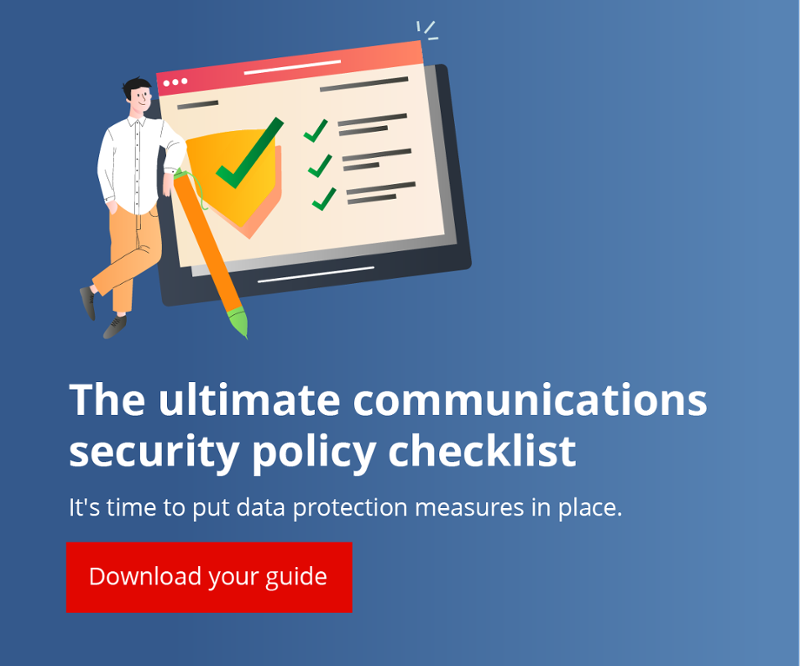The traditional argument against the public cloud has always centered on security. Though it may seem like storing sensitive information on public servers is asking for a data breach, that’s no longer the case. In fact, according to Norton:
‘Information stored in the cloud is likely to be more secure than are files...stored on your own devices. Why? Cloud companies often rely on far more robust cybersecurity measures to protect your sensitive data.’
That’s good news for those of you that might have worried about using cloud-based SaaS, but doesn't it mean that there’s no longer a strong use-case for hosting things on-premises? Not quite.
There’s a reason we make a big deal about the fact that we offer an on-prem option, and that so many businesses take us up on it.
Here’s why the cloud might be the right choice for you, and why self-hosting is still alive and kicking.
1. No compliance concerns? Choose the cloud
If you’re not in an industry that requires a specific type and standard of data storage, the chances are that the cloud will serve you well.
As mentioned above, cloud security has reached a high standard as SaaS providers (us included!) have recognized it as a differentiator. For the majority of unregulated industries, it’s more than enough. On-premises hosting gives you more control over your security measures and how they’re enacted, but that doesn’t necessarily mean it’s more secure.
There’s also a series of technical considerations to take into account that might make on-prem hosting more trouble than it’s worth for your business, especially if you’re undecided or it’s not a compliance requirement.
Chief among those technical considerations is the access process. With the future of work looking decidedly remote, a distributed workforce has to be taken into account when adopting new communication tools. If you’re self-hosting your comms, you’ll have to:
- Figure out how remote employees will gain secure access to your server
- Understand how that will affect your firewall settings
- Decide whether or not you’ll have to pay for a VPN service
- Determine what changes will have to be made to BYOD policies – and more.
For many businesses, those kinds of considerations make on-prem hosting untenable. In some cases, though the extra effort is more than worth it:
2. Heavily-regulated industry? Keep it in-house
Who’s putting the time and energy into making self-hosted IM work, then? Often, we’ve found that businesses interested in self-hosting are in industries with strong or complex compliance regulations (and significant penalties for non-compliance).
From handling sensitive financial information to sharing patient records on IM, data storage and transfer can be fraught for some businesses. While cloud-hosted platforms can meet industry-specific compliance requirements (hint: Trillian), for some there’s more peace-of-mind to be had with the on-prem approach (hint: Trillian).
When you’re hosting IM on your own server, security and access management is up to you. It can be tailored to your organization’s and your industry’s specific requirements. This involves a bit more up-front work, but if you’re considering on-prem IM for compliance reasons, we’re willing to bet you’ve done this with other software already.
3. Already have an in-house server infrastructure? On-prem makes sense
To that last point – we've also found that some of our customers choose to self-host simply because it’s a preference, and they already host everything else themselves.
That was one of the main reasons Dartmouth-Hitchcock opted to host Trillian in-house. They’d already invested in self-hosting, but weren’t happy with the state of employee communication and wanted to avoid a cloud solution for security and compliance reasons.
Because there was already a server infrastructure in place, their switch to Trillian was fairly seamless and solved their communication problems. If you – like them – are using Active Directory, Trillian’s authentication will automatically sync with it, and employees will be able to keep the usernames and passwords they know and love when logging in.
You’ve got options
While cloud-based IM may make sense for most companies, we still talk about and offer on-prem hosting because it’s still absolutely essential for so many businesses. That could be because your industry requires it, or because you don’t want to stay up all night worrying about data security — we think it’s important to give our customers a choice.
Don’t worry about service, either – if you host Trillian on your own server, you’re not dead to us. We provide as much support as you need whether it’s at our place or yours.
If you’re interested in diving deeper into the security of your business’s communications, we’ve got just the guide for you. Check it out here.




